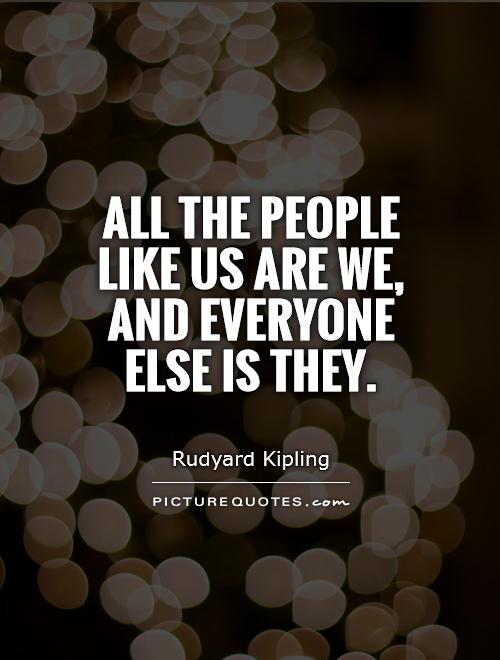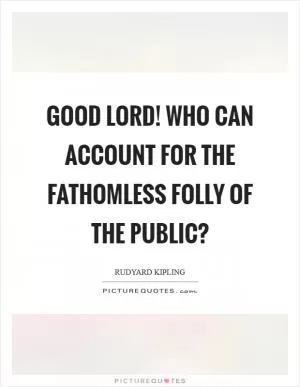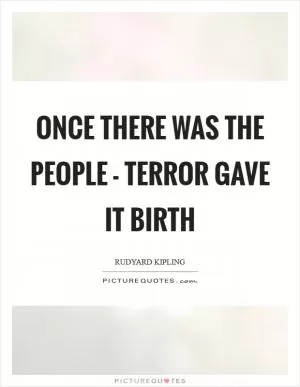All the people like us are we, and everyone else is They

All the people like us are we, and everyone else is They
Rudyard Kipling's words, "All the people like us are we, and everyone else is They," encapsulate a profound truth about human nature and the way we perceive others. This quote highlights the tendency of individuals to form groups based on shared characteristics, beliefs, or experiences, and to view those outside of their group as different or "other."In today's world, this idea of "us vs. them" is all too prevalent. We see it in politics, religion, race, nationality, and countless other areas of society. People often gravitate towards those who are similar to them, whether it be in terms of background, interests, or values. This sense of belonging and camaraderie can be comforting and affirming, but it can also lead to the exclusion and marginalization of those who are perceived as different.
When we view others as "They," it becomes easier to dehumanize them, to see them as less worthy of respect or consideration. This can lead to prejudice, discrimination, and even violence. It creates an "us vs. them" mentality that can be incredibly damaging to individuals and communities.
Kipling's words serve as a reminder that we are all part of the same human family, and that our differences should be celebrated rather than feared. By recognizing the humanity in others, we can break down barriers and build bridges of understanding and empathy. We can learn from those who are different from us, and grow as individuals and as a society.












 Friendship Quotes
Friendship Quotes Love Quotes
Love Quotes Life Quotes
Life Quotes Funny Quotes
Funny Quotes Motivational Quotes
Motivational Quotes Inspirational Quotes
Inspirational Quotes